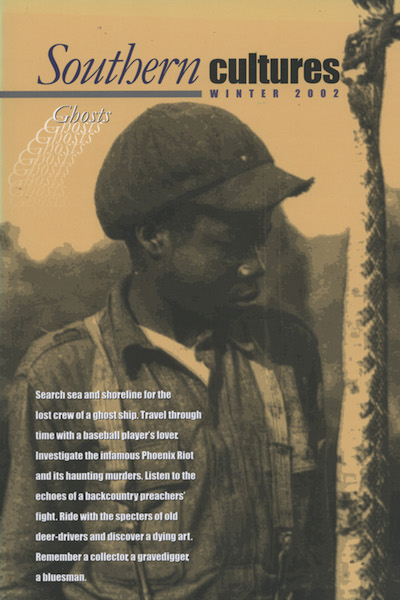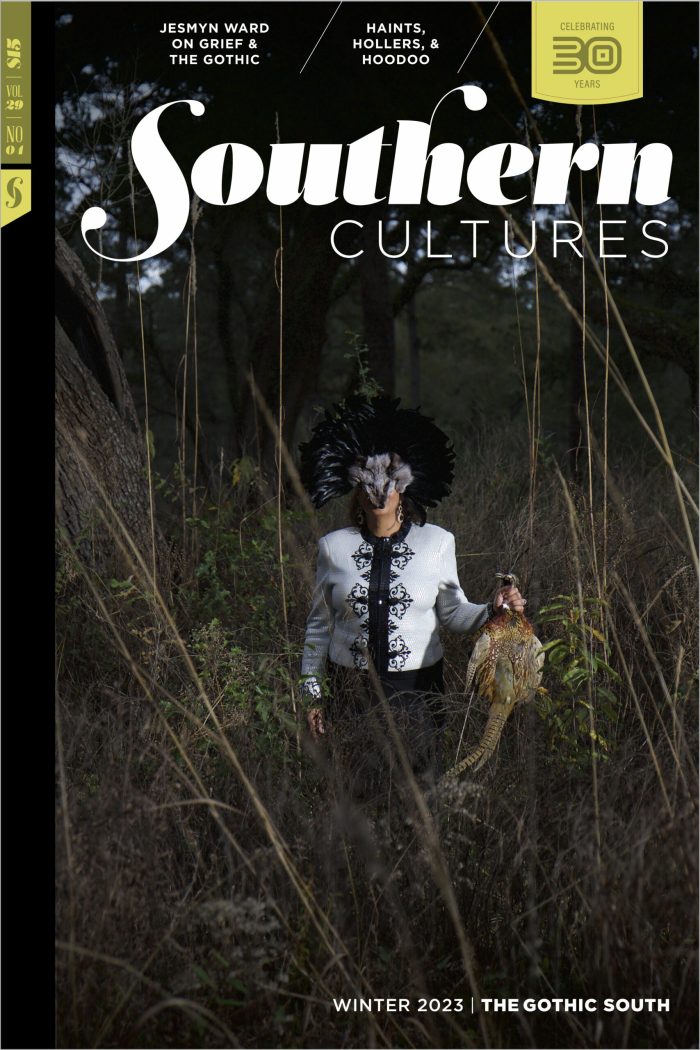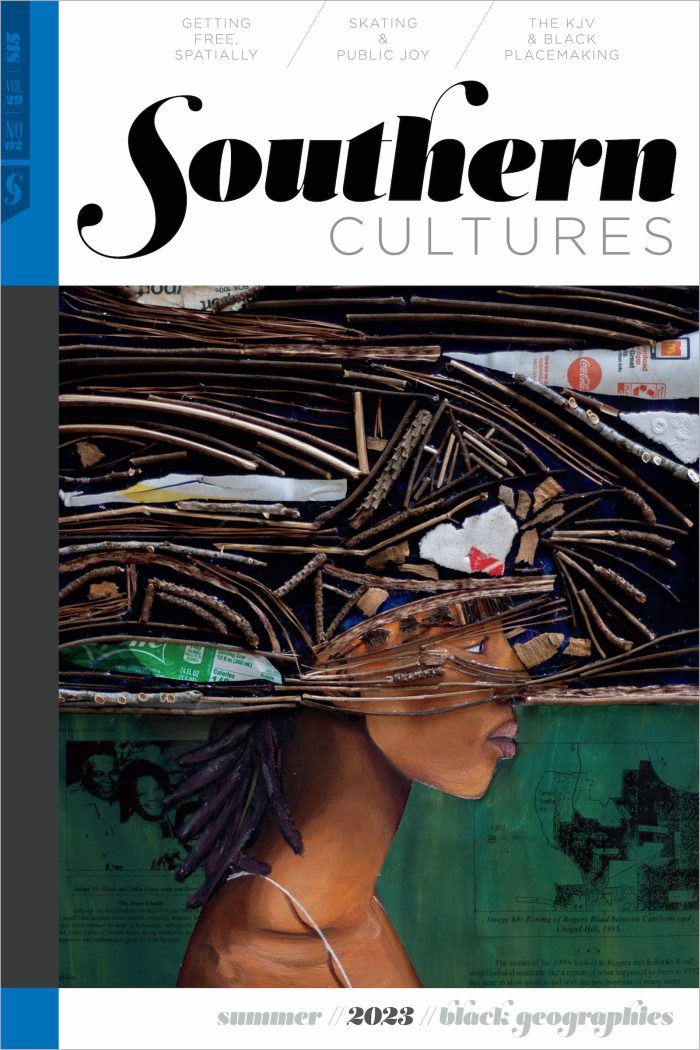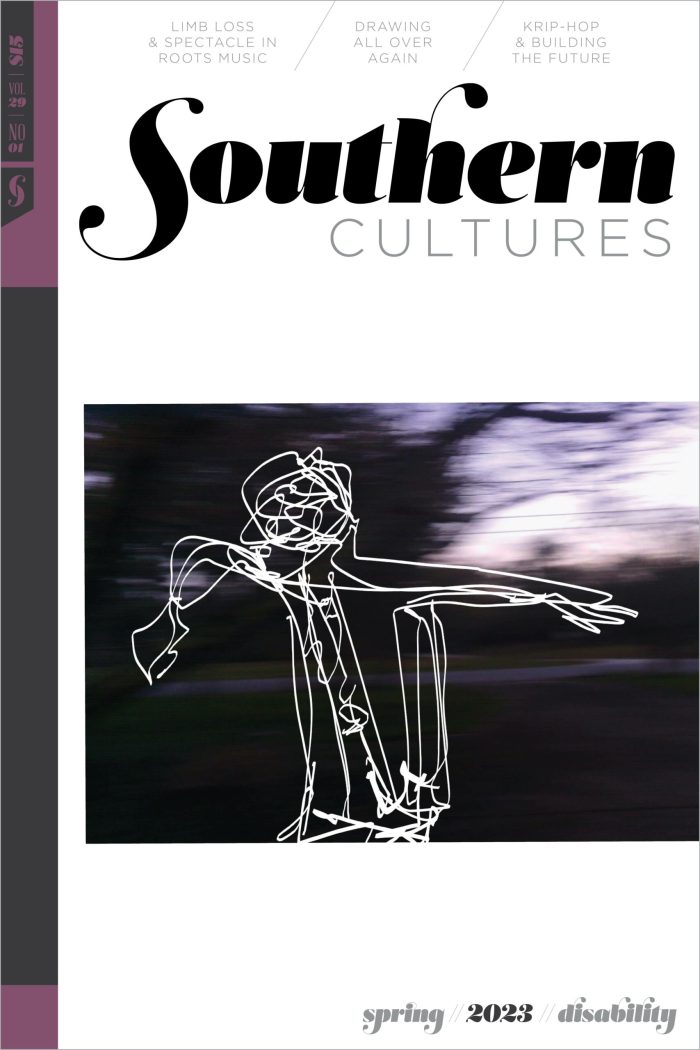BUY ACCESS
by Marc Smirnoff,
Euell G. Brady
“To me it was nothing but musical feces.” The results of the latest subscription drive are in, and while Southern Cultures continues to get bigger and healthier, we also are getting our fair share of off-the-cuff editorializing. Not that we mind. The very existence of this particular feature, for instance, relies upon colorful and thoughtful »
BUY ACCESS
by Harry L. Watson
“I bleakly recognized a haunt from my own family.” When I first began to read a lot of American history, I thought the tales and the personalities were fascinating but still remote. Whether the subject was the space race or the Salem witches, nobody I knew seemed directly involved or especially kin to me. For »
BUY ACCESS
The Mystery of the Carroll A. Deering
by Bland Simpson
“Upon the rude unpainted table at home the fisherman laid the wet paper, unscrolled it, but then could barely make out the sloppy clots of penned words: Deering Captured by Oil Burning Boat . . .” In late January 1921, less than two years after her maiden voyage, the Maine schooner Carroll A. Deering ran »
BUY ACCESS
by Daniel Levinson Wilk
“‘I was with my father when they rode up, and I remember starting to cry.'” November 8, 1898, was election day in the small town of Phoenix, South Carolina. Inside Watson and Lake’s general store, local citizens cast their ballots. Out on the porch, a white man, Thomas P. Tolbert, set up a small box »
BUY ACCESS
by Eugene D. Genovese
“Brownlow was ‘a Methodist preacher, who once preached with a pistol and a bowie-knife on the Bible before him . . . . ready to gouge any fellow creature.'” Antebellum southerners had ample reason to consider themselves as religiously tolerant as any people in America. Certainly, the testimony of Catholics and Jews bore them out. »
BUY ACCESS
by Ileana Strauch
“These images chronicle a century of tradition.” The Gullahs are descended from African slaves taken to work on the cotton and rice plantations of the Sea Islands of South Carolina and Georgia. Isolated until recently from white and even other African American influences, the Gullahs developed a distinctive creole language and preserved many West African »
BUY ACCESS
by Darnell Arnoult
“He is cocky. He’s also cute and a good kisser.” C. P.’s outlaws versus the Martinsville Oilers.Hotdogs and popcorn fill Friday night airalong with moths that flutter and flirt withdanger in the field lights.
BUY ACCESS
by Rob Golan
“The soundtrack for my Revelation was a simple three-cord ditty.” John Jackson, one of the last remaining Depression-era bluesmen, passed away in Virginia on January 20, 2002. Born in 1924 to Virginia farmers who played music at parties on the weekends, Jackson learned to play guitar at age four and was accompanying his parents by »
BUY ACCESS
by Christopher Windolph
The University of Alabama Press, 2000 Despite Twain’s warning—”Persons attempting to find a motive in this narrative will be prosecuted; persons attempting to find a moral in it will be banished; persons attempting to find a plot in it will be shot”—a war of words rages over Adventures of Huckleberry Finn. Widely taught as a »
BUY ACCESS
by Jack Bass
University of North Carolina Press, 2001 This thoroughly researched and well-written book provides what may come to be seen as the definitive history of the 1948 Dixiecrat movement and its impact on transforming southern politics and changing America’s political culture. A side account also provides the first detailed report of the events that forced African »
BUY ACCESS
by Jennifer Lynn Ritterhouse
Mercer University Press, 2000 In 1975 critic Robert A. Bone surveyed two decades of scholarship to find that charges of racism had put Joel Chandler Harris “in bad odor among the younger generation of literary men.” But to most readers and even many scholars today, Harris is not only odorless but invisible—forgotten, ignored. Walter M. »
BUY ACCESS
by David R. Goldfield
University of Georgia Press, 2000; University of Alabama Press, 2000 When it came to writing southern history a generation ago, cities were places up north. The “true” South was embodied in the small town, the plantation or farm, and those who inhabited these timeless places. Not so any more. Books on the urban South are »
BUY ACCESS
by Eliza R. L. McGraw
University of Georgia Press, 2001 Recently, the Fox Family network has been airing episodes of their new show, “State of Grace,” which is about a young Jewish girl named Hannah Rayburn. Hannah’s family moves from Illinois to North Carolina, and she copes with being a “fish out of water,” as the show’s description says, with the »
BUY ACCESS
by John C. Inscoe
University of Tennessee Press, 2000 The Valley of Virginia lies along the state’s northwestern edge, bordering both West Virginia and Maryland, and consists of a broad, lowland expanse between the Shenandoah and Blue Ridge mountain chains, watered for at least part of its length by two forks of the Shenandoah River. Geographically, the Valley served »





